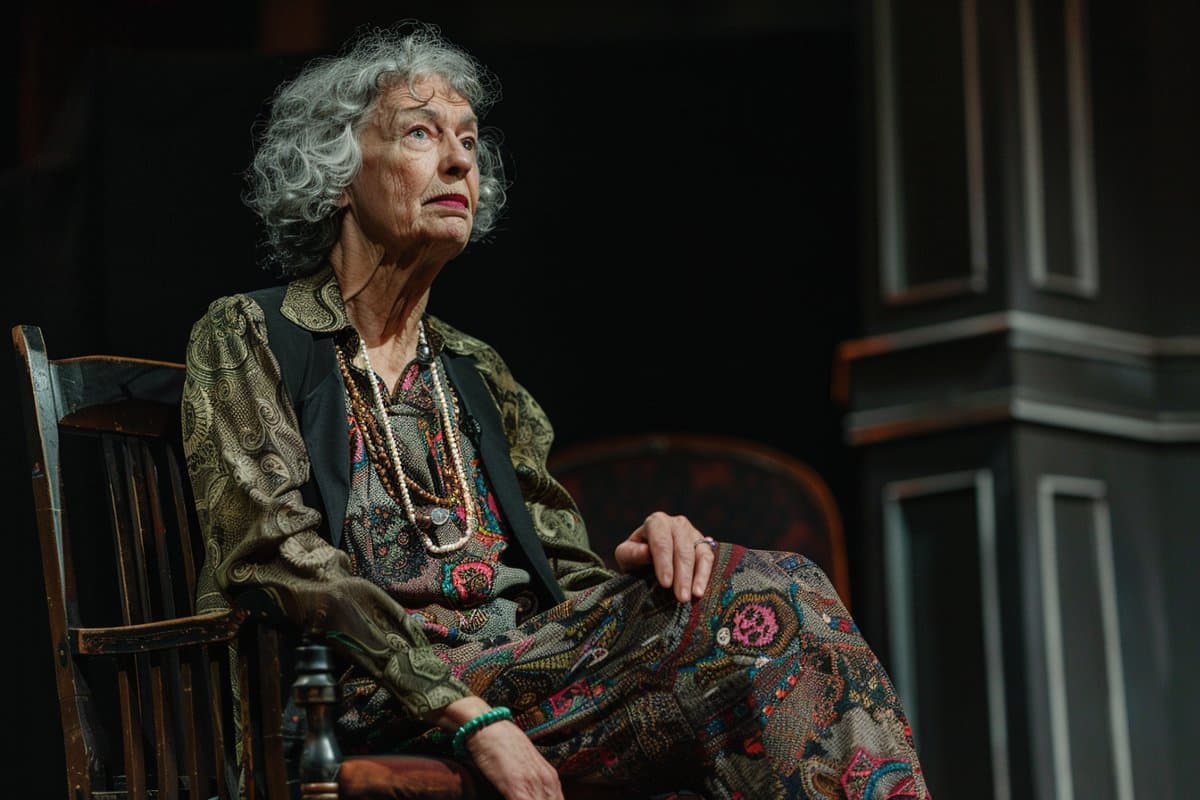Summary: A new study highlights the unintended ageist outcomes of Applied Theater, specifically reminiscence theater, which risks reducing older adults to mere storytellers of the past, overshadowing their current identities and contributions.
The research calls attention to how these practices, despite their positive intentions, may inadvertently perpetuate stereotypes and neglect the present lives and agency of participants. To combat this, the study introduces an Anti-Ageism Praxis (AAP) framework focusing on co-creation, present responses, and challenging stereotypes, aiming to foster more ethical and inclusive applied theatre practices that truly value older adults’ voices and experiences.
Key Facts:
- Unintended Ageism: The study reveals how reminiscence theatre can inadvertently encourage ageist views by focusing solely on older adults’ pasts, neglecting their current lives and perspectives.
- Anti-Ageism Praxis (AAP): A new framework proposed to ensure applied theatre practices are inclusive, emphasizing co-creation, present responses, and the dismantling of stereotypes.
- Ethical Practice in Focus: The research underscores the importance of ethical practices in applied theatre, aiming to respect and amplify the voices and agency of older adults, aligning with the UN’s SDGs on health, well-being, and reducing inequalities.
Source: University of Surrey
Imagine your grandmother’s life story distilled into a performance, applause washing over her as strangers dissect her past. Sounds heart-warming, doesn’t it? Not so fast, warns a new study from the University of Surrey.
The study found that Applied Theater practices, particularly reminiscence theater, could encourage ageism. This happens when we only see older adults as sources of stories from the past and forget to listen to their current thoughts, opinions, and hopes for the future.

Reminiscence theater is a form of interactive drama in which older adults share memories and experiences through dialogue, storytelling, and creative activities.
The study, led by Dr Georgia Bowers from the Guildford School of Acting, has shown that unconscious biases and assumptions can lead practitioners to unknowingly reinforce negative stereotypes about older adults. This can be particularly evident in reminiscence theatre, where focusing on extracting memories risks neglecting participants’ present experiences and agency.
Dr Georgia Bowers, Lecturer and Programme Leader of Applied and Contemporary Theatre BA (Hons) at the Guildford School of Acting and lead author of the study, said:
“It’s crucial to acknowledge that ageism exists within even well-intentioned practices like applied theatre. While reminiscence theatre offers valuable benefits, it can become problematic if we don’t prioritize co-creation, shared power, and a focus on participants’ present responses to their memories.”
The research proposes a new Anti-Ageism Praxis (AAP) framework to address these concerns. AAP emphasizes:
- Co-creation and shared power: Participants actively collaborate in shaping the project and final performative outcomes, ensuring that they are not only used for their recollections.
- Focus on present responses: Exploring how participants feel about their memories in relation to the present moment leads to focusing on the here and now and not solely on what has been.
- Challenging stereotypes: AAP prioritizes showcasing older adults’ diverse experiences and perspectives, fostering understanding, and dismantling ageist assumptions.
Dr Bowers continued:
“This research opens important conversations about ethical practice in applied theatre. The proposed AAP framework offers a valuable guide for practitioners to ensure older adults are central to the work and their voices are truly heard.”
The research demonstrates the University of Surrey’s contribution towards the United Nations’ Sustainable Development Goals (SDGs). Particularly: SDG 3 (Good Health and Well-being) and SDG 10 (Reduce Inequalities).
About this memory and aging research news
Author: Georgina Gould
Source: University of Surrey
Contact: Georgina Gould – University of Surrey
Image: The image is credited to Neuroscience News
Original Research: Open access.
“Invading Capitalist Ageism in Applied Theatre through Anti-Ageism Praxis” by Georgia Bowers. Performance Research
Abstract
Invading Capitalist Ageism in Applied Theatre through Anti-Ageism Praxis
This article highlights how in the UK ageism derives from invasive and pervasive capitalist practices, where our cultural understanding of ‘being old’ is driven by institutional exit from the labour market.
The article explores how ageism has bled into applied theatre practices and problematizes the widespread use of reminiscence theatre as an ageist methodology, as it restricts older people’s experiences to the past.
Issues of power between the facilitator and practitioner are also explored by questioning the exclusive nature of reviewing and editing older people’s personal recollections and who determines what memories have creative value.
This article advocates that the field must now fracture away from reminiscence models and instead I propose an Anti-Ageism Praxis (AAP), which functions as a resistance against the invasion of capitalist informed ageism and oppressive ageist theatrical engagement. Instead, AAP places emphasis on shared power, co-collaboration, being present and creating theatre that is informed by real time moments, feelings and thoughts.






